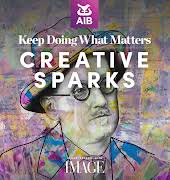
By IMAGE
06th Aug 2019
06th Aug 2019
Kate Holmquist
Kate Holmquist was a mother, a novelist and a journalist. She was also a kind and supportive colleague. I worked with her in The Irish Times, where she offered me words of encouragement to find and trust my own voice as a journalist and as a woman. Since the sad news of her death this weekend, many people have shared similar sentiments about a woman whose empathetic approach led to insightful and powerful writing.
Kate contributed articles to IMAGE Magazine and in 2007 she wrote this piece on happiness; a piece we wanted to share as a tribute.
Leonie Corcoran, Acting Digital Editor.
Happiness. Even the most cynical of us are hard-wired to want it, yet, until recently, this state of mind hadn’t been scientifically studied. Psychologists and psychiatrists have long researched what makes people miserable by focusing on mental ill health, but wellbeing – if that’s what happiness is – has been taken for granted. Those happy people are okay, thank you, and the standard by which the rest of us are measured.
But could happy people actually have anything to teach us? Or are they living in cloud cuckoo-land? Are they, well, just a little bit less complicated?
If you’re averagely happy, when you hear that Harvard University is teaching a course in Positive Psychology, you’ll probably think: how very American. The pursuit of happiness, enshrined in the US Constitution, is so often interpreted as greed, selfishness in relationships and a sense of entitlement to the good life that can only be gained at the expense of responsibility in personal and social relationships.
Positive psychology
If you were to take the course at Harvard University, Psychology 1504, you’d learn that Positive Psychology has become a hot topic. You would be treated to personal anecdotes by lecturer Tal Ben-Shahar, who would tell you and your 899 fellow students that you can learn to achieve happiness by changing the way you look at the world.
“Real happiness comes from a deeper place that we strive all our lives to find.”
Isn’t the desire to be 100% happy just a little selfish? Europeans, when tested for happiness levels, are far more concerned about equality in society and find it impossible to be happy when they see suffering around them. Russians, interestingly, don’t expect to be happy at all and, when it comes their way, are reluctant to express it.
As an occasional sufferer of depression, which runs in my family, I’ve learned to see happiness as an occasional treat – like Christmas. Of course, I’ve been happy, even ecstatic (if that’s the same thing). Great sex, my wedding day, the births of my children, sunshine and sea and a few career successes have made me blissfully happy for short periods. But real happiness comes from a deeper place that we strive all our lives to find.
I’ve discussed this with a psychiatrist friend, who says maybe I shouldn’t expect to be happy. Look at your genes, he says. Swedish. Maybe that’s a bit unfair on Swedes; however, it is true that studies of twins and adoptees have proven that 50% of our happiness is determined by our genes.
So what about the other 50%? Sonja Lyubomirsky is an experimental psychologist who has spent her career trying to answer this question. She’s become convinced that each of us has a “genetic set point” for happiness that nothing can change – even a Lotto win.
Hedonic adaptation
Research has shown that when something marvellous and even positively life-changing happens to a person, that feeling lasts less than a year. After that, the person reverts to their genetic set point. This is called “hedonic adaptation”, by which the person who moves from the €200,000 house to the €2 million house may be happy for a while, but eventually becomes as dissatisfied as before.
Perhaps that is why Oscar-winning Hollywood actresses complete with handsome filmstar husbands, pronounce themselves miserable a year later and travel to some exotic locale to adopt children in the hope of fixing it. Hedonic adaptation ensures that more and different doesn’t mean happier.
“It was ‘indecent or inappropriate to be unhappy about trivial things and that one should strive to find joy’.”
So what does make a difference? Lyubomirsky has developed a series of exercises that, she believes, can help people to raise this set point to make us, say, 75% happy or even more. She began developing exercises in 1989 after her adviser, Stanford University psychologist Lee D Ross, told her about an exceptionally happy friend who had lost his parents in the Holocaust. Ross told her that his friend learned that it was “indecent or inappropriate to be unhappy about trivial things and that one should strive to find joy”.
Related: ‘Falling in Love with Ireland’ Kate Holmquist, Irish Times
Certainly, psychologists have long known that we interpret the same experiences in different ways, but until Lyubomirsky came along no one had studied this scientifically. She found four main thought processes that influence whether we interpret our experiences negatively or optimistically: how we compare ourselves to our peers; how we justify our choices; how we judge ourselves; and how we think about others.
For example, chronically unhappy people see themselves as less talented, poorer and less deserving of love. They think people don’t like them. Happy people interpret their experiences optimistically. Rather than feeling envious, for example, they’re grateful for what they have.
Random acts of kindness
By measuring her subjects’ happiness in questionnaires carried out via email, Lyubomirsky has found three strategies that she believes are the keys to happiness: kindness, gratitude and optimism. She asks people to practise random and spontaneous acts of kindness, having learned that habitual kindness becomes a chore.
She suggests that once a week people sit down and make a list of what they are grateful for (doing this once a day actually tends to irritate people). And she asks her subjects to try to imagine their best possible self in order to help them become optimistic.
“Happiness is a habit. And to be truly happy (some of the time), you have to believe you deserve it.”
Lyubomirsky is convinced that happiness requires sustained effort: “A lot of people don’t apply the notion of effort to their emotional lives, but the effort it takes is enormous,” she says.
So remember, happiness is earned. Happiness is a habit. And to be truly happy (some of the time), you have to believe you deserve it. Look after yourself in little ways, and the big joys of life will come around eventually. Enjoy them while they last. And if you’re unhappy 50% of the time? Don’t beat yourself up. You’re probably normal. Or Swedish. Like me.
Exercises to try
Follow your heart: For me, it’s the flow of writing that gives the high I imagine a tennis player feels on playing a tough match and winning. This “flow”, says Dr Martin Seligman, known as the father of the Positive Psychology movement, is the essence of happiness. When we’re doing what we really love, we become totally absorbed in the present, stop replaying the disappointments of the past and worrying about dangers in the future.
Live life now: Lyubomirsky has found that you can increase your happiness levels simply by enjoying what’s good about the present and ignoring what is unpleasant for four weeks.
Emotions won’t kill you: A wise woman once said to me (in one of my anxious dark moments): “They’re only feelings.” Tal Ben-Shahar at Harvard advises his students to give themselves “permission to be human”. Fear, sadness and anxiety are natural, not abnormal. There’s nothing wrong with feeling bad. Have a good cry. Negative feelings pass eventually, like dark clouds.
Think of others: So much of what we do is focused on achievement – succeeding in a career, saving for the mortgage, paying the mortgage, wearing the right clothes, driving the right car. But as anyone saddled with a three-year car loan or a 35-year mortgage knows, the joy of acquisition lasts only a few days; the repayments go on forever. Real joy comes from meaningful experience.
Psychologist Maureen Gaffney believes this is why the Irish appear in the top 10 in international happiness surveys. The Irish are more connected with other people, giving them chances to help each other out during the day.
Helping other people brings a lasting happiness that a new car doesn’t. Lyubomirsky, too, has found that routinely committing acts of kindness for between two to three months raises happiness levels.
Think again: It’s your state of mind that makes you happy, not your status or your bank account, says Tal Ben-Shahar. Yet while we know he’s right, living it is another thing entirely. Your state of mind depends on that old cliché – do you see the glass as half-full or half-empty? Failure at work is devastating to one person, but seen as an opportunity by another to learn a new skill or find a more fulfilling job.
Lyubomirsky has found that when people become depressed, they focus inwards and analyse their feelings and problems in an attempt to gain self-insight. “Contrary to such beliefs, my research suggests that repetitive and self-focused rumination about the implications of one’s depressive symptoms actually appears to maintain those symptoms and impair one’s ability to solve problems,” she says.
Ignore the Joneses: Happiness research shows that people are happiest when they’re richer than their immediate neighbours, rather than poorer. Moving upmarket to a wealthier area could make you unhappy if your neighbours have more disposable income than you do.
Call it human nature; we all like to think we’re living where the grass is greenest. Be happy for others richer than you are, but don’t compare yourself to them. Unless you’re living in the Third World, you have enough. Enjoy it.
Happily ever after? Every romantic novel has a happy ending, yet when people are surveyed about what makes them unhappy, marriage comes top of the list. The happiest people rely on their friends, not their spouses, for solace and unconditional love.
Feel good: Great sex makes people happy. It’s guaranteed. Nobel-Prize-winning psychologist Daniel Kahneman of Princeton University measured women’s happiness by means of a questionnaire. Nine hundred women detailed everything they had done on the previous day and how they felt at the time. What made them happiest was sex, followed by spending time with friends, relaxing, praying or meditating, and eating.
Balancing acts: In the Princeton University survey, women got more pleasure from exercising, watching TV and cooking than taking care of their children, which ranked only slightly above housework. The stress of caring for young children comes out tops as a cause of unhappiness in hundreds of surveys.
While 36% of parents and grandparents rank children as the top givers of happiness in retrospect, the daily drudgery is a different story.
A mere 7% of mothers rank motherhood as making them happy on a daily basis. When you have young children, you need other more fulfilling activities in your life to balance the drudgery – even if it’s just a cup of tea with the mother and toddler group (and a cuddle from your partner in the evening; see sex, above).
Good spirits: More than 200 studies have found that people who are religious are happier, with less depression, drug abuse and fewer suicide attempts. Believing that your life has meaning beyond the daily material concerns of earning and spending protects you against unhappiness.
Those with the highest IQs are the unhappiest, perhaps because they question and analyse the need to feel spiritually connected. While your head may be telling you that you’re agnostic or even atheist, your heart needs you to believe in something, even if it isn’t organised religion. Do yoga, meditate – anything that helps.
This article appeared in the November 2007 issue of IMAGE Magazine. It was accompanied by the following introduction on the contributors’ page of the magazine.
Kate Holmquist is a novelist, staff journalist with The Irish Times and a mother of three. Given the challenge of writing about happiness for IMAGE, she had to do a little soul-searching: “What makes me happy? Being a workaholic, because it’s my choice and not a compulsion, combined with those unexpected moments in the day when my children give me joy in very large doses.”
For Kate, flexible working was what enabled her to be creatively fulfilled without asking her family to pay the price. “I don’t believe in women being confined to roles. And I’m not defined by where I live, what I drive or what I possess.”























